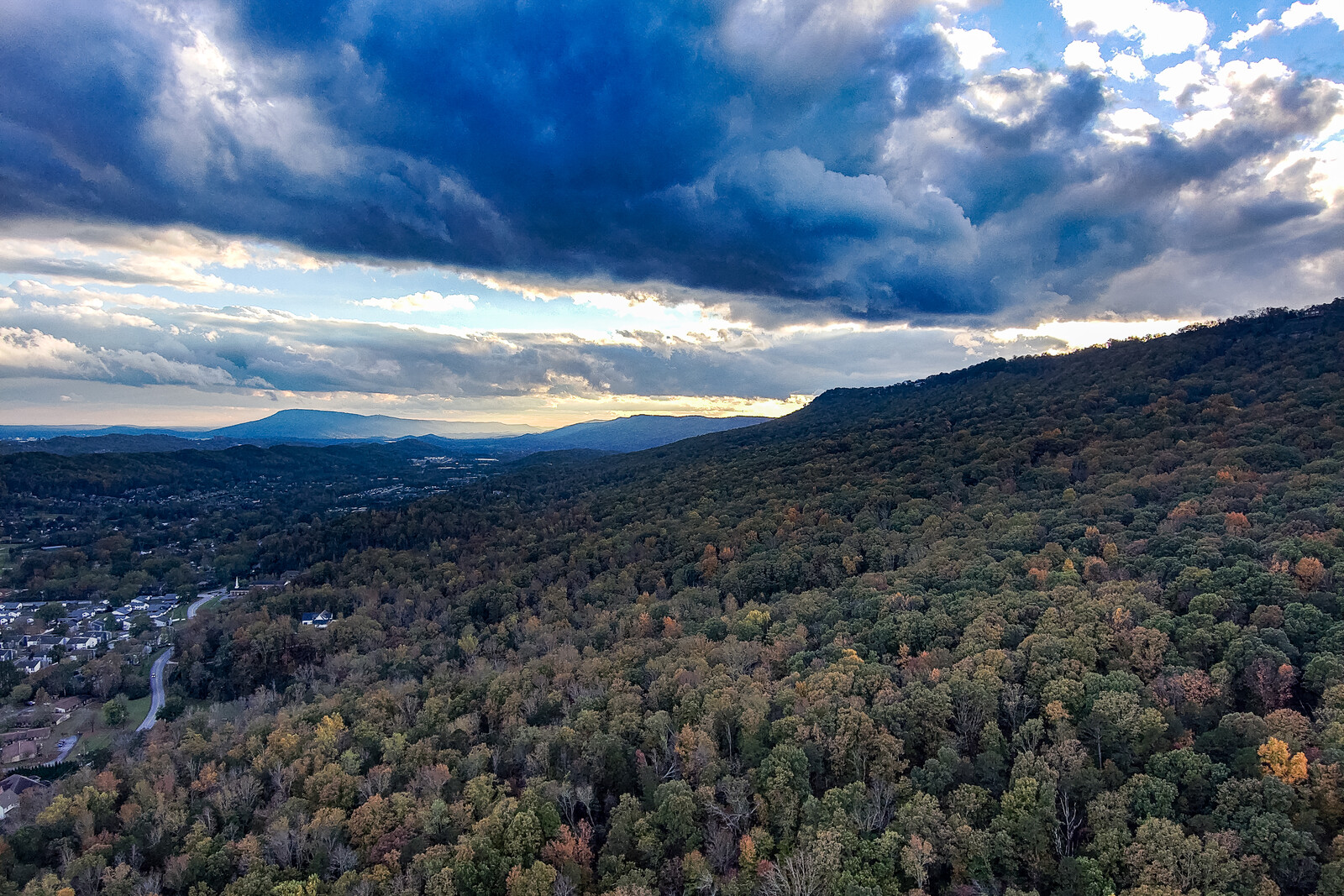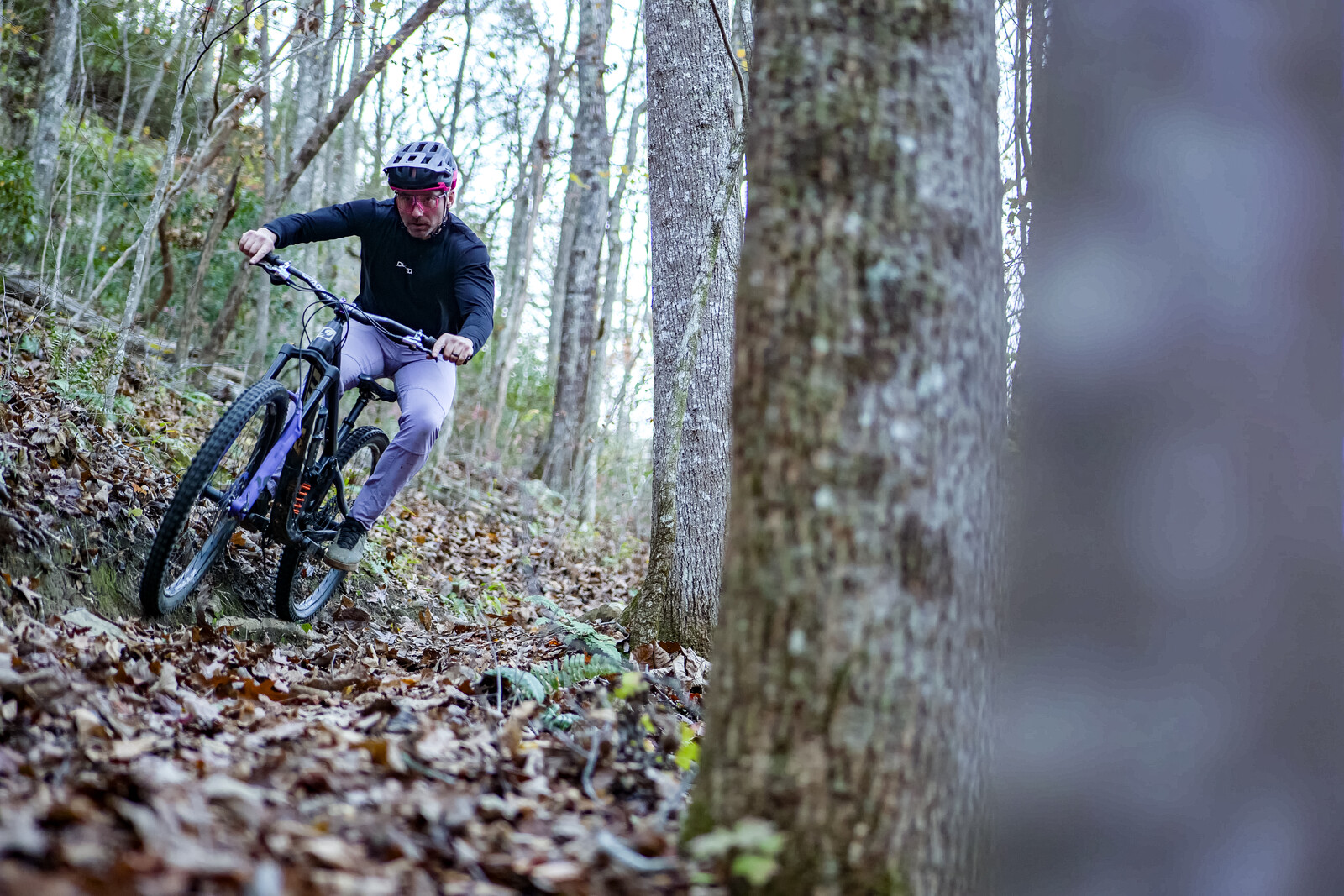Chattanooga is the fourth largest city in the Volunteer State and has become something of an outdoor darling in recent years, due in large part to its prevailing rock climbing and paddling culture. With three prominent mountains (Signal, Raccoon, and Lookout) flanking Chattanooga from the northeast to the southeast, the Appalachian Mountains draped along the western border, and liquid assets that include the venerable Tennessee River flowing through town, and the whitewater staple known as the Ocoee to the east; it's easy to see just why the city and its surrounding area is seen so favorably by outdoor enthusiasts of all stripes, including mountain bikers.
Chattanooga sits snugly in the southeastern corner of Tennessee, and just across the state line with Georgia lies a much smaller community of decidedly less renown compared to its neighbor. Walker County is home to 70,000 people in total, which is less than half the number of people who live within Chattanooga city limits. Despite its small size and rural setting, Walker County played a vital role in the growth and development of “Scenic City”, which was at one point considered the dirtiest in the country. That moniker was due in large part to the coal-to-coke conversion processes that took place in towns like Chickamuga, GA which would then be transported by train to Chattanooga as a key ingredient for the rampant steel production that took place throughout the twentieth century. The city’s heavy industrial foundations led to alarming levels of air pollution, which were amplified by the topography surrounding the city, with the ridgelines and mountains trapping the toxic off gases in a “bowl” of sorts, with Chattanooga at the center of it.
Of course today things are much different for the region. The very same mountains and ridges that were ravaged during the peak of the industrial fracas are now highly sought after for decidedly different pursuits. The City of Chattanooga has become a bit of an outdoorsy model citizen, having been bestowed a number of awards for outdoor recreation and featured in several print and online features within climbing, paddling, and mountain bike circles. While Walker County, Georgia might not garner the same level of name recognition just yet, there is a contingent of riders working hard to elevate the prominence of mountain biking in their area and shed the baggage of their community’s past.



“Chattanooga has done well with its outdoor recreational economy,” Eric Pullen tells me. “Walker County and northwest Georgia hasn’t really embraced it as much, but we’re beginning to.”
Eric holds a lot of titles. He is the economic and events director for the City of Chickamauga, GA. He is also on the board of directors for the city’s chamber of commerce and holds a seat with the Walker County tourism committee. He is also a member of the Northwest Georgia chapter of SORBA, also known as the Southern Off Road Bicycling Association, a powerhouse non-profit doing amazing advocacy work throughout the southeastern United States. Eric was a northwest GA native before moving his family to Chattanooga a decade ago where he and his wife, Emily, were active members of SORBA Chattanooga and helped to cultivate a love for the sport among the area’s youths through a youth series called T.Y.M.B.R., or Tennessee Youth Mountain Bike Races. A few years ago, Eric and Emily decided they wanted to live in a less densely populated community while staying fairly close to the resources Chattanooga provides, and now call Chickamauga home. Reflecting on the growth and development of outdoor recreational opportunities for his home, Eric sees a lot of hope on the horizon.
“The ‘Walker Rocks’ branding you’re seeing in our county shows that we recognize the importance of the outdoors to our community,” he says. “Like a lot of small communities in the area, we had a lot of mining and industrial jobs leave the area. We see tourism as a way to fill the void left behind, and outdoor recreation as a sustainable way to provide jobs while preserving our natural resources and not really upsetting the natural balance to the lifestyle this place provides.”





In addition to the area’s SORBA chapters, groups like Lula Lake Land Trust are also fighting the good fight for outdoor recreation and land conservation. Formed in 1994, LLLT has worked to conserve over 12,000 acres of land in northwest Georgia and own 3,500 acres on Lookout Mountain itself. Between 2007 and 2019, LLLT built over 60 miles of trails for hikers, trail runners, and mountain bikers between 3 primary networks, which include their “core preserve”, as well as the Durham Mine trails and Cloudland Connector trails. In a part of the world where extraction practices nearly wrecked the area’s natural resources, groups like Lula Lake and SORBA are actively flipping the script which, if you enjoy trails, is a good thing.
“Everything has come full circle,” Eric notes as we gear up for a ride from the Durham Mines trailhead. “The foundries and mining industry are gone. We have an economy that is partly based on outdoor recreation and all of these areas that were disturbed by mining practices are now making for wonderful trails. We’re going to ride one today that is across an old mine tailing, and it’s like riding a roller coaster. You know I left the community for a few years, and to come back and see everything come full circle has been eye opening, and I’m happy to be a small part of it now that I’m back home.”








View replies to: Underexposed: Walker County, GA
Comments